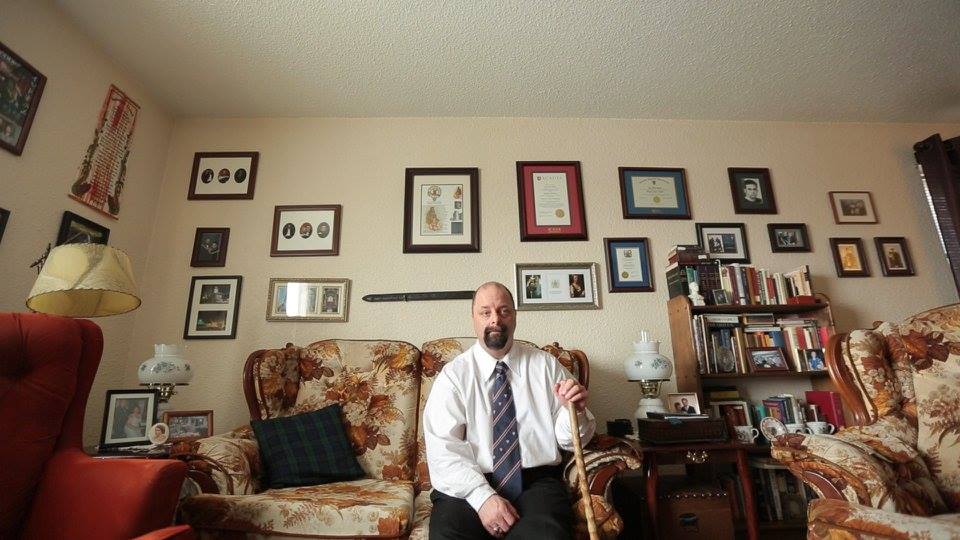
KJIPUKTUK (Halifax) – Sometime in mid-September several MLAs representing all three parties attended a screening of My Week on Welfare at the auditorium of the Nova Scotia Art Gallery in downtown Halifax. My Week on Welfare is an eye opening documentary, produced by Jackie Torrens, that offers glimpses into the lives of income assistance recipients, families and individuals both, trying to make ends meet on a scandalously low food and shelter budget. The screening was organized by BRAG and CASAR members.
This is what Aron Spidle, who is featured in the documentary, told the MLAs. KJIPUKTUK (Halifax) – Little seems to have changed in the last three years since the documentary first aired. Income Assistance recipients still often live 30% to 61% below the poverty line, and even the increase to come in 2019 of 5% for disabled recipients would amount to about $40 to $50 a month, max.
Recipients are still painted as malingerers. They are still told that their own poor decisions are responsible for their present state. It is evident that the department is not really listening, let alone responding to recipients’ concerns or suggestions.
I dislike immensely talking about myself in the following sense, and of complaining, generally. On a personal level, in the years since the documentary aired I have become something of a fighter, an advocate. I am an ISFJ on the Myers-Briggs scale, which means that conflict, argument, fighting is anathema to my nature for the most part. I thrive on taking care of people, on creating and living amidst harmony and order. I am a lover not a fighter as my grandfather used to say.
The fact that I have become an advocate, a fighter, should tell you all that you need to know about what it is like to interact with the department, and with the Employment Support and Income Assistance program. That’s before one even considers the fact that experience has taught me that one cannot trust them.
“I have to ration my food and medicine”
A litany of examples: These days I have about $50 left from my Income Assistance cheque once I pay my basic bills and deduct my tithe. That is for food, medicine, grooming and cleaning supplies, and everything else. I have to ration my food and medicine to make them last. And my cheque will further decrease in October.
I live in fear of an eventual rent increase, although my landlord is awesome, or of needing medicine that is not covered by the Nova Scotia formulary. When a friend asks me to do something with them, the first thing that occurs to me is to “how can I get out of this gracefully?” because most of the time I cannot afford it.
I can afford to do one load of laundry a week, which means that my bed linen is changed once every three weeks or so. There are clothes in my closet, from what seems like another life, that I rarely wear anymore because they require special care. Even something as simple as a coffee with a friend often requires advance planning. Life’s unexpected happenings can be a mini-disaster, and the highlights can be tinged with sadness, too.
To make a long story short, I did not get to a relative’s funeral because I did not have the funds for fuel. And, one Christmas Eve day not long ago, I sat in my living room and cried because I could not get a little kid a present. I knew enough about the reality of the system to be very wary even before I applied in the wake of my job loss, to such an extent that I, in fact, contemplated suicide.
In spite of what I knew to be true about life on welfare, I could not have imagined the full reality of being a Social Assistance recipient. Despite being extremely wary, and an encounter with a caseworker that was…not all that it could have been…I was willing to trust, to, in all fairness, give Community Services the benefit of the doubt. It took them less than three months to destroy that.
The two main issues: Attitudes and inadequate supports
There are two main issues with regard to the social assistance system: an attitude issue, and inadequate supports. Both could be addressed by such relative cost-neutral means as: ceasing the practice of second-guessing client’s physician’s requests and diagnoses; an increase in shelter allowances (about $4 million) to more accurately reflect the average reality the cost of housing; and allowing individuals to keep more of the occasional funds which they might receive from time to time. Invest in people through taking into account the Social Determinants of Health.
Community Services claims that it is transforming the system, that they’re addressing these concerns, but I have seen few signs of that where the rubber meets the road, where clients and caseworkers intersect with “the system.”
Indeed, the “consultations” in which I have been involved were more like information dispensing sessions than genuine dialogue.
I think also of those few good and caring case workers who are stymied and frustrated by the current system. By unwritten policies, directives, and assumptions, that interpret and influence that which is written down—and which, in some cases some have argued, may flout the law. Many burn out and leave or become hardened. Promises to them have not been kept.
Those who speak on behalf of the department have asked for patience and trust. Patience and trust?! When individuals are hurting, and hungry now? When incomes continue to be slashed, without regard even for the Department’s own stated commitment to social inclusion? When promises have been repeatedly made and broken?
What do those on welfare and advocates want? True consultation, rather than window dressing. Secure funding for housing. The ability to pay one’s bills, to eat properly, to have medicine and other such things as required, and to occasionally be able to be the one to say, “Hey guys. Let ME grab the coffee this time!” To be able to contribute to society, and have the non-monetary aspects recognized by Community Services, and, finally to be treated with courtesy, and respect, and to be left alone.
So, how can you help? Write a letter and publish it. Don’t assume that every syllable that falls from the lips of those with whom you deal is gospel.
Consider what you hope would be the case if you or a loved one were in need of social assistance. Demolish/challenge stereotypes where you can. When you’re in a meeting, in the House, when/if you form the next government, remember what has passed between us today.
Why you should care
Why care? First of all, because it is the right thing to do. Secondly, because we are very much called to be our brother’s keeper. Thirdly, because of the medical, social and economic benefits that accrue to the individuals, involved and to society as a while.
Fourth, poor people *do* vote, just remember Joanne Bernard. People get rather upset when promises are broken/disregarded, of when they’re misrepresented. One realizes that not everything that is promised or desired can be accomplished at once or over night, but *STILL!!!*… Poor people *do* vote.
Finally, because there are very few of us beyond the possibility of needing income assistance. I am one example. With my education, my work ethic, my references, it wasn’t remotely on my radar. Indeed, there are still times when I am stunned to think that it is so. There but for the grace of God, as the saying goes. But I would argue that even there, the Grace of God is not void of power and ability.
In spite of all of the frustrations, I have so much to be grateful for. I have a very rich life in non-monetary terms. Most of my family is gone, but I have the best step-mother in the world, and I have some incredible friends.
There is the Humanities Program. I do get to do things now and then, by God’s grace. In fact, when I do anything that is beyond basic survival it is by God’s provision—and He has surprised me on more than one occasion. The thing is free, someone else has paid for me, or He has taken a more direct hand in accomplishing it.
I have work for my hands to do in terms of my volunteer efforts, working around my recalcitrant physicality. All of which is a practical outworking of my Christian faith, and my desire to contribute to our social capital, and to build a foundation for a future for generations yet unborn.
There is work here for *our* hands (MLAs etc.) to do—but there is so much more to be done. Let’s invest in people, let’s join hands and do it together, so that, at the very least, those generations to come will have cause to bless our names.
See also:
- When ends never meet: Tim Blades at the My Week on Welfare screening for Nova Scotia MLAs
- Changing the definition of welfare cheats – My Week on Welfare screening in Dartmouth North
- My week on Welfare, four months later
If you can, please support the Nova Scotia Advocate so that it can continue to to amplify the voice of folks like Aron, and cover issues such as poverty, racism, exclusion, workers’ rights and the environment in Nova Scotia. A paywall is not an option, since it would exclude many readers who don’t have any disposable income at all. We rely entirely on one-time donations and a tiny but mighty group of dedicated monthly sustainers.
Subscribe to the Nova Scotia Advocate weekly digest and never miss an article again.




This is such a true story. I have faced the same issues that Aron has. I didnt want to be on welfare/Income assistance but due to mental illness I had to. If it wasnt for a
Psychiatrist when I was in the hospital I would of been living off of 600.00 a month but he put in a request for diet and for a phone. This I was able to have a phone for contacting my supports. The additional monies for food wasnt much but did help. I am also a vet. With a non taxable 273.00 medical pension from the armed forces which is non taxable.This came straight off my overall amount of income assistance.
If you would like to know more or looking for loop holes like getting a very cheap bus pass let me know. If it wasnt for family I would not of survived this time spent on income assistance.